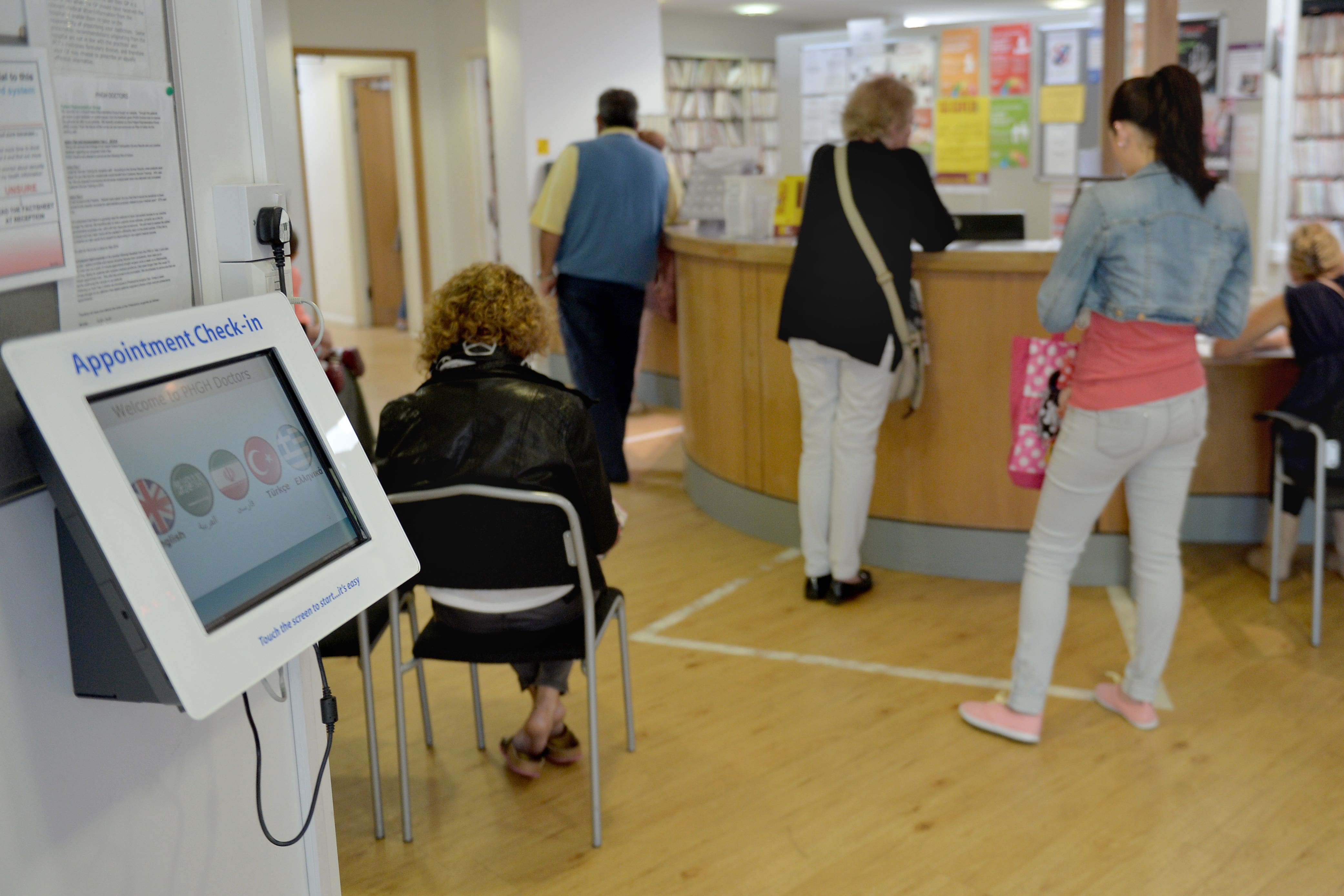Poll suggests 41% of GP practices are limiting appointments
The survey comes after family doctors voted in August for collective action, which they warned could last for months.

Your support helps us to tell the story
From reproductive rights to climate change to Big Tech, The Independent is on the ground when the story is developing. Whether it's investigating the financials of Elon Musk's pro-Trump PAC or producing our latest documentary, 'The A Word', which shines a light on the American women fighting for reproductive rights, we know how important it is to parse out the facts from the messaging.
At such a critical moment in US history, we need reporters on the ground. Your donation allows us to keep sending journalists to speak to both sides of the story.
The Independent is trusted by Americans across the entire political spectrum. And unlike many other quality news outlets, we choose not to lock Americans out of our reporting and analysis with paywalls. We believe quality journalism should be available to everyone, paid for by those who can afford it.
Your support makes all the difference.More than two-fifths of England’s GP practices are limiting appointments, a survey suggests.
A poll by The Pulse magazine found 41% of 660 practices are limiting patient contacts to 25 per GP a day, which comes after family doctors voted overwhelmingly for collective action in the summer.
The British Medical Association (BMA) issued a list of 10 actions for surgeries to consider, including limiting patients seen each day or refusing to carry out work GPs are not formally contracted to do.
The NHS is broken, and the Secretary of State has been clear he wants to work with doctors to get it back on its feet so it works for patients and staff
The Pulse survey suggests about 70% of practices are taking some form of action, with 59% reporting they have reduced services since the August 1 vote.
Some 11% said they had made cuts before the result was announced on August 1. Another 7% told the survey they would not take part in collective action.
The survey was told by 42% of respondents they have stopped rationing referrals, investigations and admissions, while 13% are still considering which actions recommended by the BMA to take.
Family doctors warned that collective action could last for months.
An NHS England spokesperson said: “We are monitoring the impact of collective action to ensure patients continue to receive the care they need.
“GP practices continuing with collective action will be open to see patients, and anyone with an appointment should still attend as usual unless told otherwise.”
The Pulse survey comes during a row over the new GP contract, which will give services a 1.9% funding increase for 2024/25 – a move the BMA claims will leave many surgeries struggling financially.
GPs launched a formal dispute over the issue in April after a referendum carried out by the union found 99% of 19,000 GPs rejected the contract.
They also raised concerns about the impact of the rise in employers’ national insurance contributions introduced in the autumn Budget.
Following Chancellor Rachel Reeves’s announcement last week, the Royal College of GPs (RCGP) said it has contacted Health Secretary Wes Streeting, seeking assurance that practices will be protected like “the rest of the NHS and public sector”.
This Government is committed to recruiting over 1,000 newly qualified GPs by cutting red tape so patients can get the care they need
Dr Steve Taylor, GP spokesperson for The Doctors’ Association UK, told Pulse: “With the current contract failing to cover costs and increase costs being brought in by the current Government in the form of National Insurance and staff costs, it is vital that the Government makes funding available now to ensure GPs can continue to provide the services they need to for patients.”
Professor Kamila Hawthorne, chairwoman of the RCGP, said: “General practice is the front door of the NHS, but it has faced years of underfunding and neglect and is now seriously struggling. We have raised significant concerns that the current GP contract is failing to provide GPs and their patients with the support that they need.
“It is not for the RCGP to get involved with contract negotiations between the BMA and NHS England, nor to influence how practices participate in collective action.
“No GP will want to restrict the services they provide for their patients, so we hope that the government is able to intervene to help reach a fair resolution as soon as possible, so GPs have the funding and support to provide the care our patients need.”
A Department of Health and Social Care spokesperson added: “The NHS is broken, and the Secretary of State has been clear he wants to work with doctors to get it back on its feet so it works for patients and staff.
“We have taken tough decisions to fix the foundations so a £22 billion boost for the NHS and social care could be announced at the Budget.
“This Government is committed to recruiting over 1,000 newly qualified GPs by cutting red tape so patients can get the care they need and NHS England is working to address training delays to ensure the health service has enough staff for the future.”